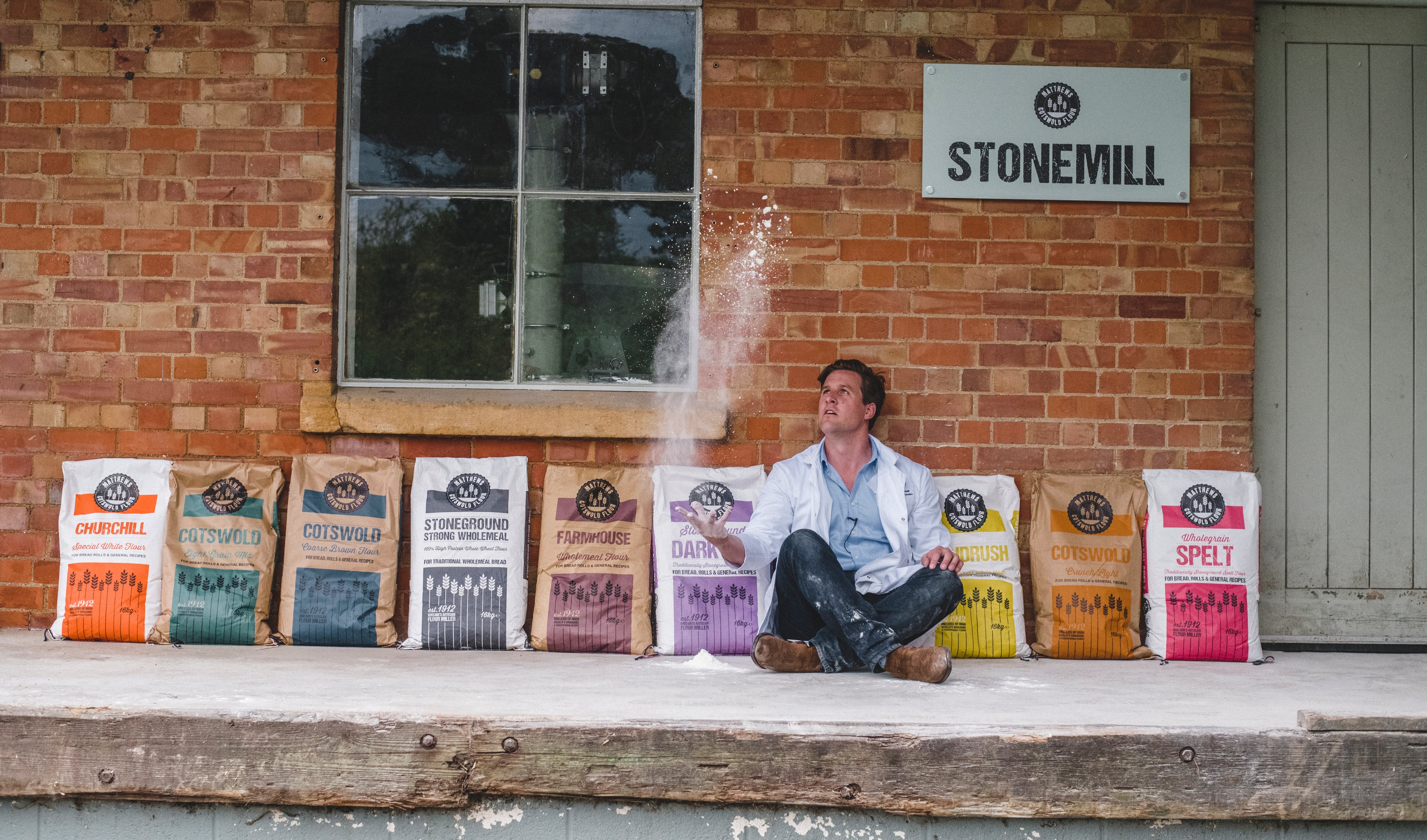From baking champions to vanilla underdogs and fast-tracked food tech, the global snack and bakery scene is anything but quiet this month. France rises to the top at the iba Bakers’ Cup, while Scotland celebrates a record sixth Scotch Pie win. Meanwhile, Kraft Heinz and pladis are rethinking everything from flexible packaging to biscuit planograms, all while staying laser-focused on what today’s snackers actually want.
The drive toward sustainability and smarter sourcing is just as strong. Uganda posts a record vanilla export; AIBI launches a bold initiative to cut flour’s carbon footprint by 30%; and the Future Food-Tech Summit returns with sessions on sugar reduction, natural colour and clean-label strategy. Add in digital growing pains, a powerful push for women in snacks, and a mega-merger that could reshape the snack world - and you’ve got one seriously loaded basket of news.
Rise and innovate

The Future Food-Tech Summit – hosted by Rethink, a William Reed company – is back in Chicago on 2-3 June and if you’re in the bakery or snack industry, it’s shaping up to be a must-attend event.
For starters, the agenda hits right at the heart of what’s next for our sector. ‘Next-Gen Ingredients for Bakery, Snacks and Confectionery’ explores the shift away from traditional fats, oils and sweeteners – opening up fresh possibilities for indulgence without compromise. Meanwhile, ‘Redesigning Sugar Reduction’ is a deep dive into how to craft craveable products while meeting sugar reduction goals (and regulations).
‘Colour Innovation: Elevating Plant-Based and Clean Label Products’ takes a closer look at natural alternatives to synthetic dyes – an issue heating up fast. With artificial colour bans looming, this session is a golden opportunity to explore vibrant, stable, plant-based options that won’t leave your labels (or consumers) in the red.
And don’t miss ‘Navigating the New Era of Food Safety and Labelling’, which addresses evolving regulatory pressures, including clean label compliance and traceability.
France takes gold at iba Bakers’ Cup
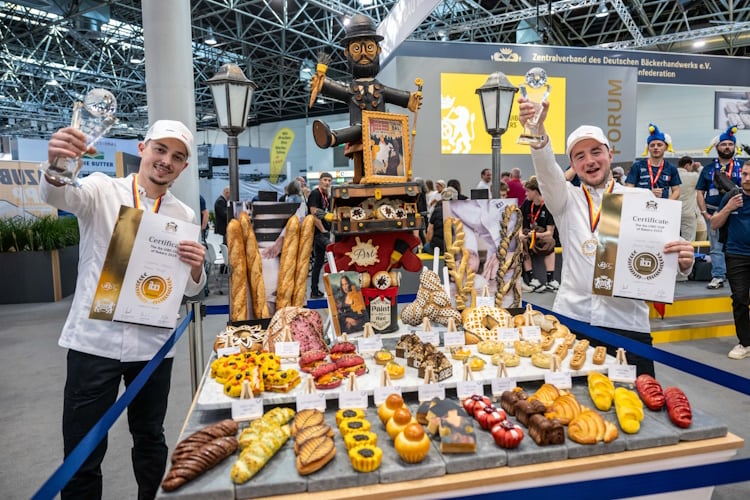
France has officially claimed the top spot at the prestigious iba UIBC Cup of Bakers 2025, held during the world’s leading baking and confectionery trade fair in Düsseldorf. Over two intense days, six international teams battled it out but it was Corentin Molina and Yannis Thouys who rose to the occasion, securing gold with their precision, artistry and technical mastery.
The competition, held under the theme of ‘Art’, challenged participants to produce an ambitious lineup: artisan breads, small pastries, party treats, Danish delights and a fully edible showpiece; all within a tight six-hour window. Crowds gathered to watch the teams perform live under the watchful eyes of a global jury.
Germany’s Johanna Lenhardt and Lea Wagner took silver, also winning the Best Showpiece award, while Mike Onase and Gerrit Huckriede from the Netherlands earned bronze. The Creative Prize was awarded to Iceland’s Sigrun Sol Vigfusdottir and Nastasja Kiencke.
“This is artisan bakery at its highest level,” said jury chair Andreas Schmidt. “Every detail matters and these bakers delivered under real pressure.”
Kraft Heinz rethinks packaging
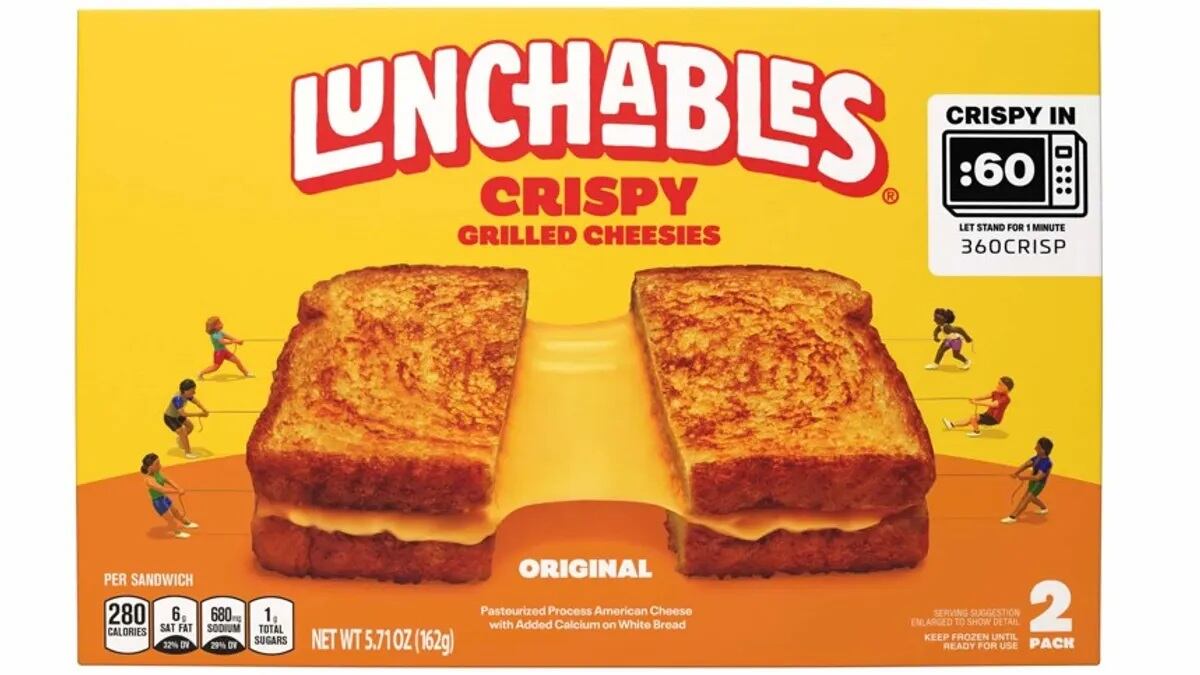
Kraft Heinz is shaking up the snack aisle, rethinking not just what we eat, but how it’s made, packaged and delivered.
At this year’s Rethinking Materials summit, the company launched a global innovation challenge focused on sustainable flexible packaging. The winner? Pack2Earth, with a biobased, home-compostable film that could soon wrap real Kraft Heinz products.
It’s just one piece of a bigger push. Kraft Heinz is laser-focused on reinventing packaging across its snack and bakery lines – transitioning to 100% rPET containers; trailing mono-material closures like the Balaton cap for ketchup; and testing TikTok-inspired formats like Dip & Crunch, a two-in-one sauce-and-chip combo.
Snack innovation is heating up on the inside too. The new 360CRISP tech is redefining frozen convenience with grilled cheese that crisps up like it hit a pan, ready in seconds. And for the plant-based crowd? Kraft NotMac&Cheese, developed with NotCo’s AI, is giving comfort food a dairy-free twist.
pladis relaunches Better Biscuits
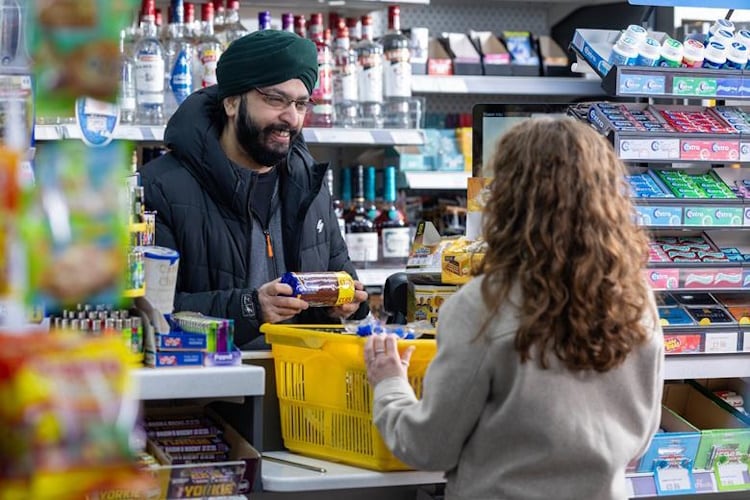
pladis has rolled out an upgraded version of its Better Biscuits platform, aimed squarely at helping independent convenience retailers boost biscuit and snack sales with ease.
The snacking giant – home to McVitie’s, Jacob’s and Carr’s – says the refreshed platform is a one-stop hub packed with tools like tailored planograms, expert advice, shopper insights, exclusive rewards and free POS kits.
“Getting the biscuit range right can be tricky,” said Paul Burns, head of impulse performance & planning at pladis UK&I. “Our planograms are designed to suit all store types and include the biggest brands - not just ours.”
The data-driven approach is clear: with 80% of sales coming from just 7% of SKUs (Nielsen, Dec 2024), pladis recommends giving prime shelf space to top-sellers while still reserving room for exciting NPD to drive impulse buys.
Retailers who sign up get fresh POS kits every 30 days, featuring shelf talkers, posters and promotional tools to spotlight new products and trends.
The relaunch follows a busy season for pladis, including McVitie’s 100th birthday bash for the Chocolate Digestive and leadership shifts across its global business.
EU to rule on Mars-Kellanova merger

The European Commission has set 25 June as the deadline to decide whether to approve Mars’ $36 billion (€32.1 billion) acquisition of Kellanova, the maker of Pringles and Pop-Tarts. The proposed deal – announced in August 2024 – will bring Mars’ confectionery brands such as M&M’s and Snickers under the same corporate umbrella as Kellanova’s snack portfolio.
The merger is part of a broader consolidation trend in the US packaged food industry, as major players seek greater scale amid inflationary pressures and increasing competition from private label brands.
Under EU merger control rules, the Commission can either approve the deal outright (potentially with concessions) or open a more indepth, four-month investigation if it identifies significant competition concerns.
Although legal experts believe the transaction is unlikely to face major regulatory hurdles due to minimal overlap between the companies’ core businesses, some European retailers have reportedly raised concerns with the Commission. These could result in targeted remedies but are not expected to derail the process.
The companies are aiming to close the deal by August 2025, but the deadline could be extended by up to 12 months if approvals are delayed. The outcome could reshape the global snack landscape significantly.
Uganda’s vanilla boom

The African country hit a sweet milestone in 2024, exporting a record 604 metric tons of natural vanilla, according to the Association of Vanilla Exporters of Uganda Limited (VANEX). With global supply chains under pressure – thanks to political uncertainty in Madagascar and shifting US tariffs – Uganda is quickly emerging as a go-to origin for food and beverage brands looking to diversify.
“Ugandan vanilla is gaining its own identity in the global marketplace,” said Prossy Tumushabe, executive director of VANEX. “We’re being recognised as a resilient, high-quality source.”
Uganda’s vanilla comes from the same Vanilla planifolia cultivar as Madagascar’s, but with a unique profile. Often described as having creamy notes with hints of cacao and fig, it delivers a rich vanillin punch that pairs well with other key ingredients like chocolate and dairy.
Flavour houses are taking note. “When brands rely too heavily on a single origin, it creates risk,” said Henry Todd of Virginia Dare. “Ugandan vanilla offers consistency, flavour depth, and sourcing stability.”
Available in a range of grades and certifications (including Organic, Fairtrade and Rainforest Alliance), Ugandan vanilla is helping brands stick with natural flavourings, support ethical sourcing and maintain the premium taste consumers expect.
Scotch Pie champ racks up sixth win
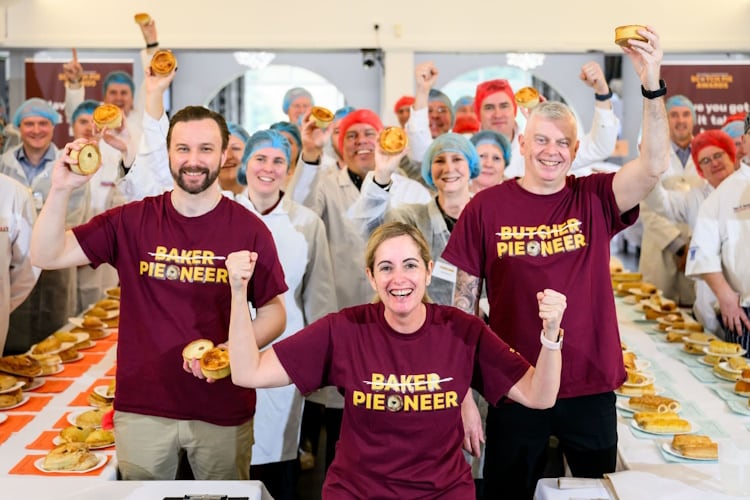
It was a big day for pies and an even bigger one for James Pirie & Son, crowned World Scotch Pie Champion for a record-breaking sixth time at the 2025 World Championship Scotch Pie Awards.
The prestigious title was awarded at a ceremony hosted by Scottish Bakers earlier this month. At the helm is Nigel Ovens, MD of McCaskies Butcher & Café, who now trades under the Pirie name after acquiring the Newtyle-based business last year. Ovens is also a proud member of the Scotch Butchers Club, whose members racked up wins across nearly every category this year.
The competition saw 539 entries from 88 companies across 12 hotly contested categories, including Sausage Roll, Steak Pie, Vegetarian Savoury and new-for-2025 awards like Retailer Pie Product of the Year and Lighter Options. WF Stark of Buckhaven took runner-up, while Goodfellow & Steven and David Stein Butchers earned Golds.
Other highlights included Pars Foods’ Kebab Pie, a Diamond winner in the Football Pie category; and Boghall Butchers’ Mediterranean Pie, which stood out in Vegetarian Savoury.
“Our winners should be incredibly proud,” said Scottish Bakers CEO Lesley Cameron. “These are true ‘pieoneers’ - celebrating tradition and raising the bar for the future.”
Brits and Germans eye greener plates
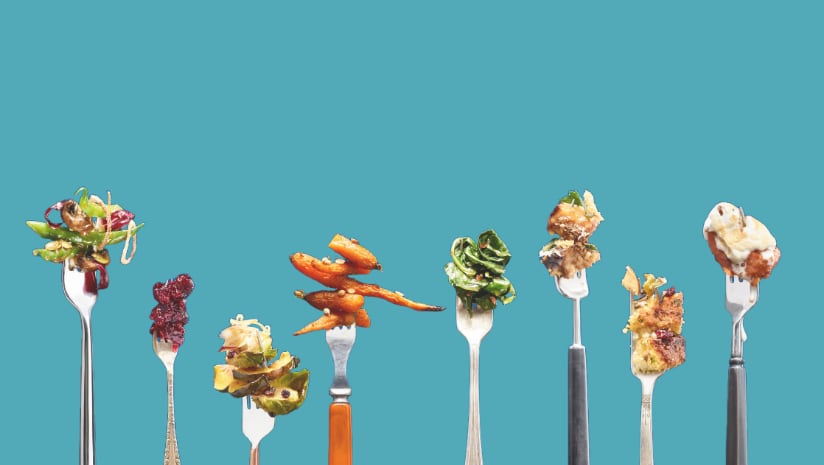
A new survey by the Good Food Institute Europe suggests the plant-based movement still has plenty of room to grow, especially in the UK and Germany, Europe’s two biggest markets. According to the findings, 38% of adults across both countries say they plan to eat more plant-based foods in the future.
The research – conducted with HarrisX and Plant Futures – reveals that while only a small number identify as vegan or vegetarian, a significant share (31% UK, 39% Germany) consider themselves flexitarian - opting for less meat without going fully plant-based. Another third had tried at least one plant-based product in the past year.
Three consumer groups are driving this shift: those cutting back on meat and dairy for health reasons; plant-based increasers (especially younger, high-income men with fitness goals); and reducers who want less animal-based food but aren’t necessarily going plant-based.
But there are still hurdles: taste, familiarity and habit continue to tip the scales in favour of meat and dairy. To make lasting change, the industry needs to focus on flavour, ease of use and clearer health messaging. As GFI Europe’s Helen Breewood puts it: “It’s not just about more choice - it’s about better experiences.”
Bold plan to cut flour’s carbon footprint
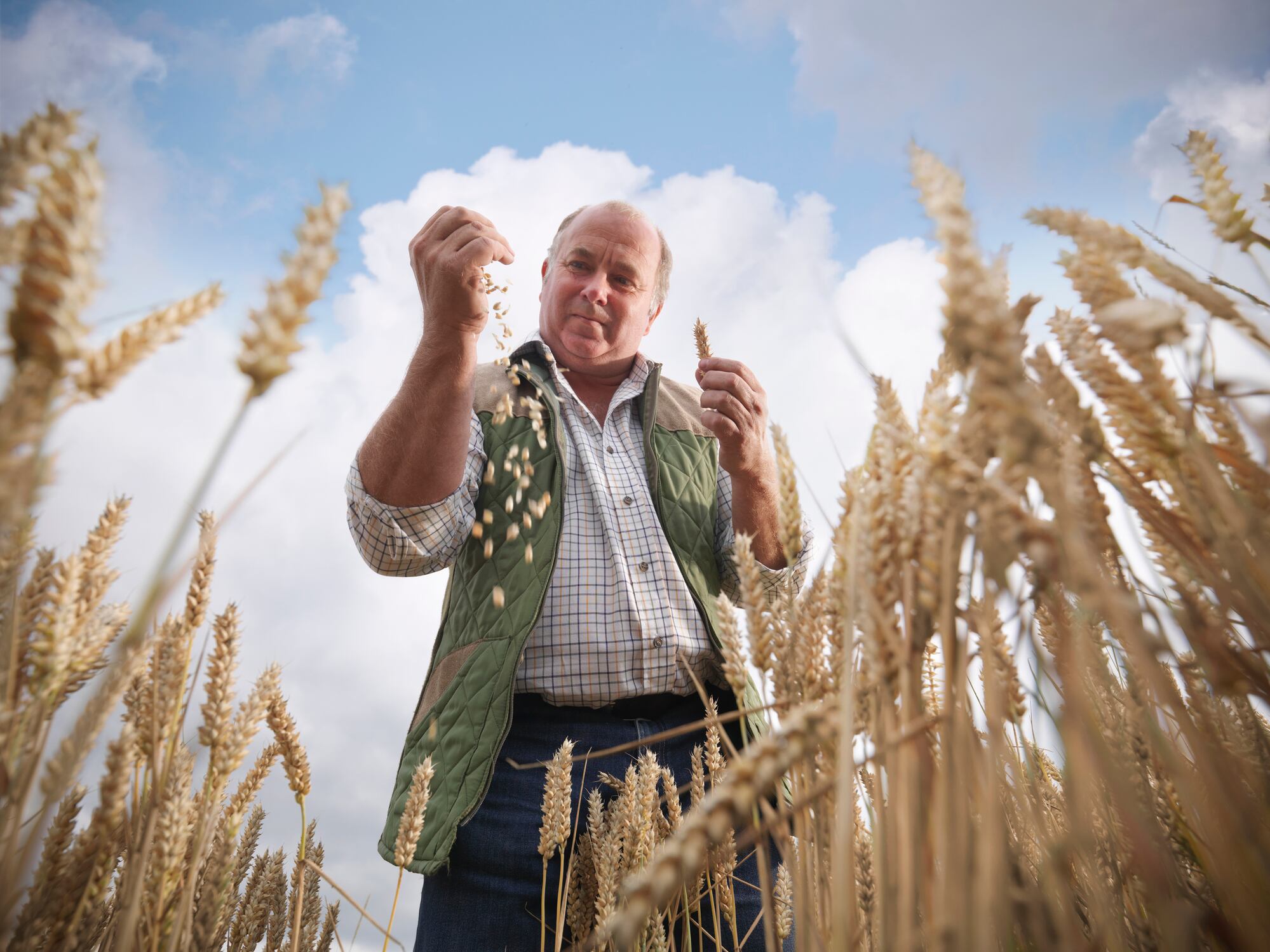
The International Association of Plant Bakers (AIBI) is bringing together the European baking supply chain to kick off an ambitious industry-wide sustainability effort: the Sustainable Wheat Initiative (SWI).
Backed by the CEOs of major baking companies, the initiative aims to cut the carbon footprint of wheat and wheat flour by 30% by 2030: a bold goal requiring collaboration across the entire value chain. To launch the project and rally partners into action, AIBI will host a two-day symposium on 4-5 June in Utrecht, Netherlands.
The event will gather more than 150 key stakeholders, including large industrial bakers, millers, cooperatives, primary producers, ingredient and equipment suppliers, and downstream partners. The symposium will focus on building a coalition of action, aligning on shared goals and identifying the innovations, practices and partnerships needed to reach the 2030 target.
AIBI’s chain-wide approach reflects the urgent need for sustainable sourcing solutions in a sector heavily reliant on wheat. By addressing carbon emissions at every step of the supply chain, the Sustainable Wheat Initiative hopes to future-proof the industry while meeting consumer and regulatory expectations.
Women in snacks take the lead

SNAC International is turning up the volume on leadership and inclusion with its upcoming Women in Snacks (WinS) Summit, taking place in Washington, DC, on 4-5 June.
The two-day event brings together emerging and established leaders (of all genders) across the snack industry for engaging workshops, bold conversations and actionable insights into leadership, empowerment and innovation.
The WinS Summit is a powerful step toward building a more inclusive and dynamic snack industry. By bringing together professionals from across the sector, it aims to spark honest dialogue, deepen leadership skills and create lasting impact for individuals and their organisations.
It’s also a clear signal of SNAC International’s commitment to equity and growth. Research shows companies with greater gender diversity at the top are not only more innovative, but also more profitable. WinS is about turning that data into action: supporting a culture where all voices are heard, valued and empowered to lead.
On the agenda:
- ‘Finding Your Voice: The Art of Strategic Self-Advocacy’ with leadership coach Heather Wiser Soubra, helping attendees sharpen their communication and confidence through practical exercises.
- ‘The Power of Your Words’ with Sarah Hurwitz, former chief speechwriter for Michelle Obama, who’ll share her experience helping leaders craft messages that resonate with authenticity and impact.
Toasting Congressional champions of baking

The American Bakers Association (ABA) recently honoured three key lawmakers at the launch of the Congressional Baking Caucus, spotlighting their leadership and support for the commercial baking industry. The Capitol Hill event drew a packed room of ABA members and Congressional staff to recognise those working to keep the industry strong.
The 2025 Baking Industry Champions Awards went to Congressman Donald G Davis (D-NC-01); Representative Chuck Fleischmann (R-TN-03); and Representative John Joyce, M.D. (R-PA-13) for their continued advocacy on behalf of the sector.
“These champions rise above expectations to support an industry that fuels local economies and feeds millions,” said Eric Dell, ABA president and CEO. “Baking isn’t just business – it’s part of the American way of life.”
Representative Davis called baking “a cornerstone of both nutrition and community,” while Congressman Joyce highlighted the importance of supporting bakers and the farmers they rely on.
The Congressional Baking Caucus will focus on key issues like workforce development, regulatory reform and supply chain resilience, ensuring that bakers across the US have a voice in Washington.
‘Forkcasting’ the future

What will dinner look like in 2050: a 3-D-printed steak, powder-to-plate meal or something we haven’t dreamed up yet? You can explore those possibilities at Future of Food, an exhibition opening 24 July at the Science Museum, London. As principal sponsor, ingredient powerhouse Tate & Lyle is backing the show to spark fresh thinking on how science can make what we eat healthier and far more sustainable.
Spread across interactive zones, the exhibition features 100+ objects and experiences – from indigenous seed-swapping rituals in the Amazon to DIY lab-grown meat kits in Japan and Kenyan radio programmes that outsmart crop pests. Visitors can sniff, touch and tinker their way through the complex web of growing, buying, cooking and consuming food, seeing exactly where cuttingedge tech fits in.
“It’s a huge challenge to feed a booming population while protecting the planet, and science is key,” said Nick Hampton, Tate & Lyle CEO. Rupert Cole, the museum’s lead curator, hopes guests leave “inspired to re-imagine our food future - for people, nature and climate alike.”
The exhibit is free (ages 7+), perfect for curious families and foodie futurists. Booking is essential.
Is the food industry stuck in a digital jam?

A new report from TraceGains reveals that 62% of food safety, quality and innovation leaders are losing sleep over economic uncertainty but many feel stuck using outdated systems that can’t keep up.
According to the Digital Drag report, based on responses from 165 food industry professionals, 69% still rely on manual processes and only 6% have fully integrated digital solutions in place. Yet, 60% say they’d invest in modern tech immediately if it could be implemented in weeks, not months.
The study highlights the growing tension between rising external pressures and internal tech limitations. Ingredient availability is a top concern, with 23% worried about how shortages are slowing innovation. Nearly 29% admit their current operational tools are inefficient and have caused internal challenges.
Interestingly, 52% of respondents say they’d prioritise new technology if it offered immediate operational improvements, even above traditional metrics like ROI (34%) or upfront cost (22%). For 24%, compliance needs or mandates could trigger a fast-track purchase within 90 days.
The key takeaway? The food industry is ready to embrace tech but only if it delivers fast, tangible results.





